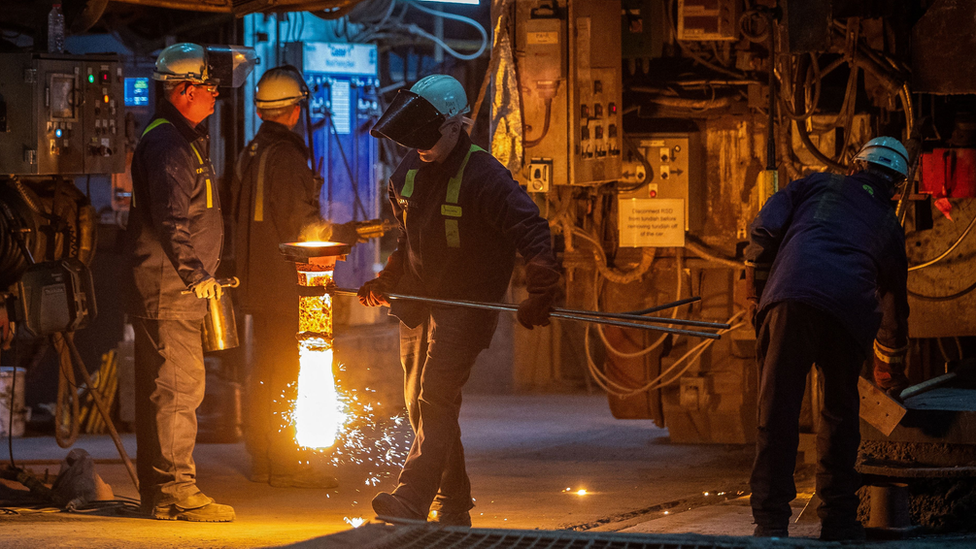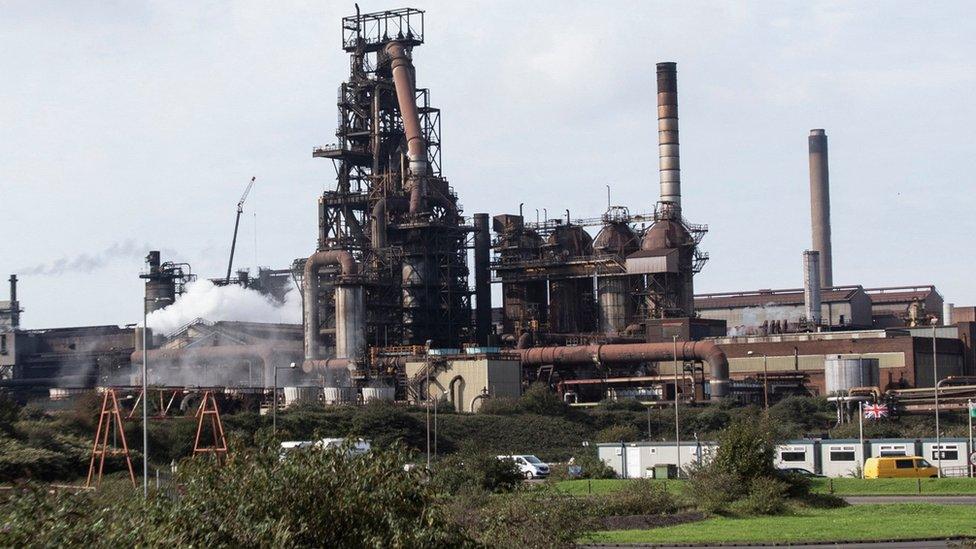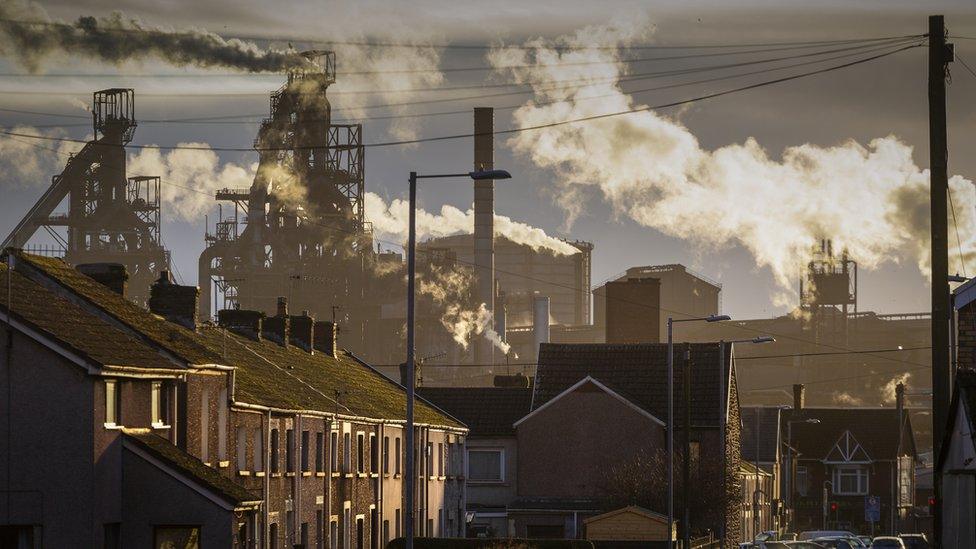Port Talbot: Tata's Steel 2,800 job cuts are 'devastating'
- Published

Tata Steel with shed 2,800 jobs over three years in the transition to greener steelmaking
Tata Steel's plans to cut 2,800 jobs are "devastating" for the UK steel industry, a union has said.
The Community union said the plan was "beyond belief" and its members would now consider their options.
Indian-owned Tata confirmed on Friday that 2,500 of the lost jobs would go within the next 18 months.
Its boss TV Narendran said the job losses were regrettable but necessary in the move to low-carbon steelmaking.
Unions told the BBC most of the 2,500 jobs losses were expected to be in Port Talbot.
An additional 300 job losses could occur in Llanwern, Newport, in three years' time, Tata added.
"Tata's announcement today is unacceptable," said Community general secretary Roy Rickhuss.
"The decision to plough ahead with the bad deal for steel first announced in September would be devastating for Port Talbot and the wider steel industry."
"Britain's primary steelmaking capacity [will be] decimated and carbon emissions offshored to heavy polluting countries," he added.
Tata will spend £1.25bn - including a £500m UK government subsidy - to replace its blast furnaces with an electric arc furnace that will produce less CO2, but also require fewer workers.
Father and son employees Jason and Owen Midwinter said they never thought this day would actually come, but have been told their jobs are under threat.
Owen, 23, who works in the blast control room, said: "When I joined a year and a half ago... I thought I had a job for life with Tata.
"There are a lot of questions going around my head, a lot of worry. You can go anywhere around Port Talbot and people will be talking about this for weeks, months."
He added: "They just want to save money I believe and this is the harshest way to do it."

Jason Midwinter and his son Owen say the news about their jobs at Tata Steel in Port Talbot has come as a "bombshell"
His father Jason, 49, said he genuinely enjoyed his job in the cold mill.
"Everybody loves a moan... but deep down [you know] you won't get a better job," he said.
"This is a massive bombshell."
He said people cannot be expected to "hang about", and workers were likely to seek new employment elsewhere rather than wait to find out their fate.
Ieuan Eltham, 29, who left school at 16 to start working for the firm, said: "Nobody knows where they're gonna go from here.

Steelworker Ieuan Eltham says there is anger at Tata
"It's a mix of emotions but disappointment is a big one.
"And [workers are] quite angry about Tata - let's be honest, it's been terrible."
Tata promised to work with unions to "maximise voluntary redundancy" and said people who lose their jobs will have access to a transition fund of £80m from the UK government and £20m from the company.
"It's not something we would have liked to happen. I think we tried very hard over the years to preserve the site, keep it going, despite all the challenges," Mr Narendran said.
Tata boss TV Narendran says the job losses are necessary despite attempts to save the Port Talbot site
"Over the last 15 years, I think we've invested something like £5bn to keep the business going. So it's not like we've given up in a hurry or that we've not tried hard enough."
He added that companies around the world must now start turning to low-carbon steelmaking.
But First Minister Mark Drakeford said the Welsh government "does not view this announcement as final".
"We're not going to give up on the effort to keep more jobs and have a fairer transition period for people in Port Talbot," he said.
Mr Drakeford has written to Rishi Sunak asking for an urgent call, but said the response was that the Prime Minister "had no time".
"That is not a reasonable response given the effect on companies and communities here in Wales," he said.
Meanwhile, Mr Sunak said the UK government was "absolutely committed" to British steelmaking despite the loss of steel jobs.
He acknowledged it "will be a worrying time", but said the alternative was the entire plant being closed and 8,000 jobs lost.
"That's why the government provided £500m to support Tata," he added.
But Labour said closure would make the UK the only G20 country not producing virgin steel.
Party leader Keir Starmer said: "The government said it had a plan for steel. It transpires the plan involves thousands of redundancies."
Related topics
- Published18 January 2024

- Published1 November 2023

- Published17 September 2023

- Published15 September 2023
